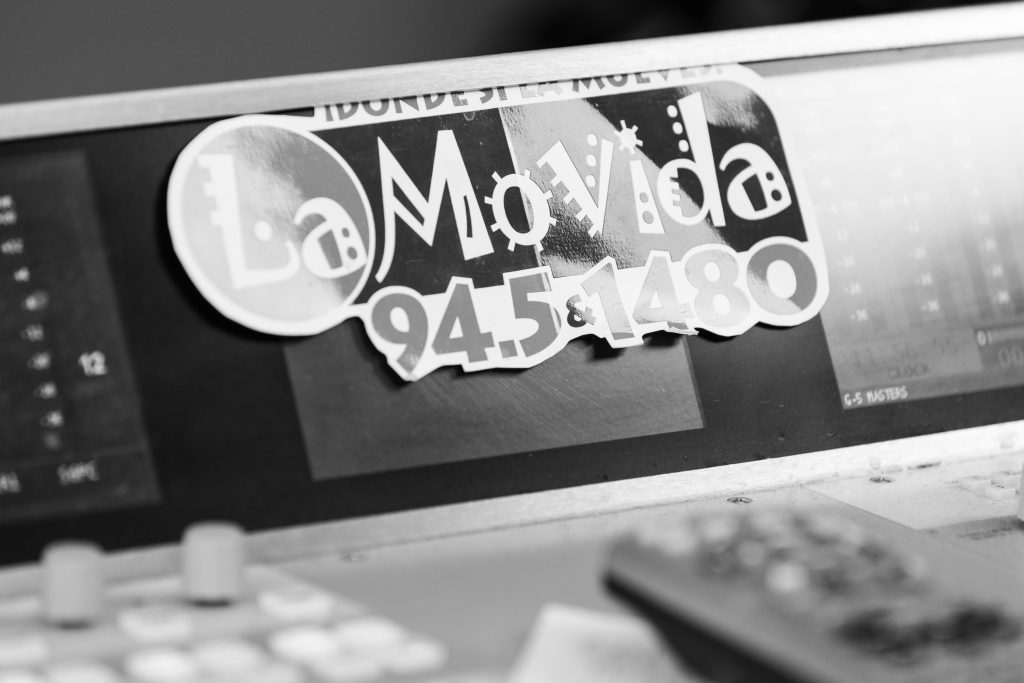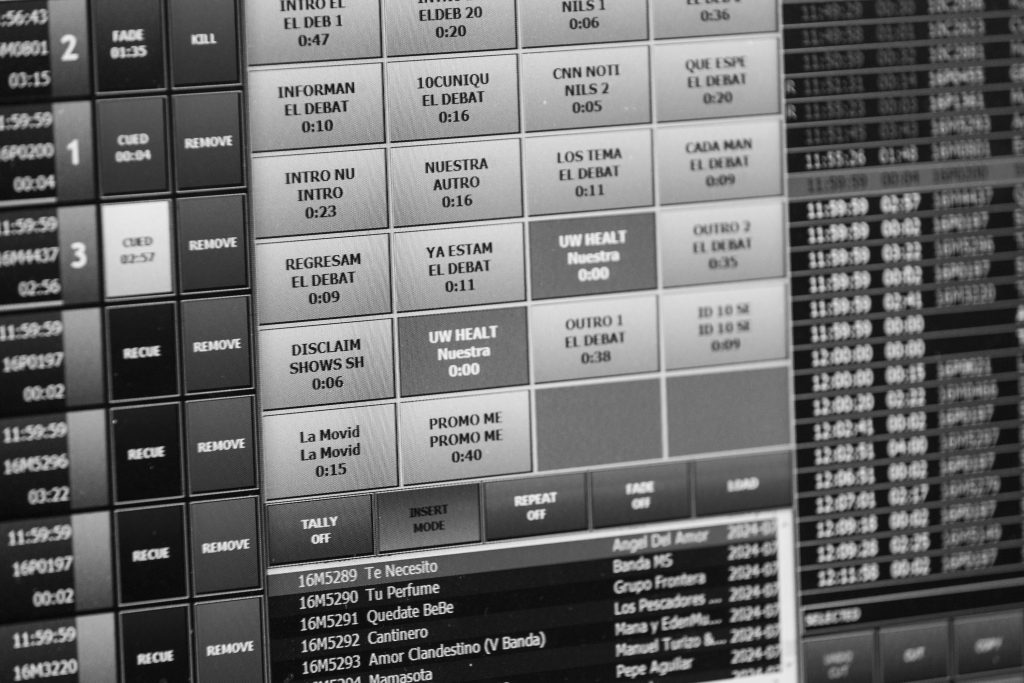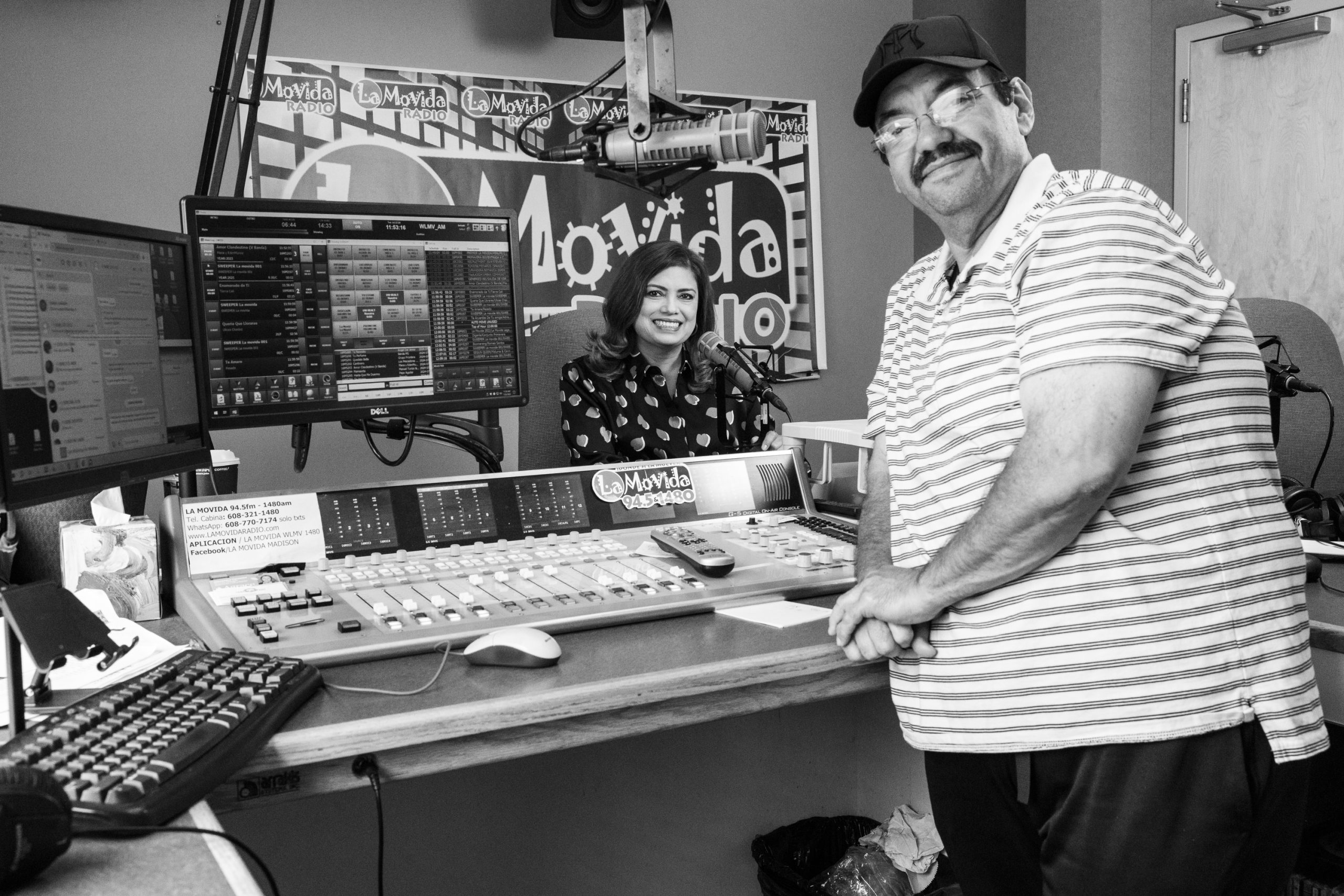Between laughs, Luis Montoto suddenly got serious. He leaned in closer, hands clasped and all business, yet still with a mischievous smile noted that radio station La Movida is about informing — not educating.
“In the Latino culture, there’s only two places where you get education,” he said. “You get education at home, and you get education at school. We inform and entertain. That’s our job. We don’t educate anybody.”
La Movida on WLMV/AM 1480, Madison’s first Spanish-speaking, 24/7 radio station, now in its 24th year on the air, is an invaluable resource for the Latino community — providing reliable Spanish-language information and serving as their advocate. Focusing on information has allowed La Movida to stay relevant to its audience for nearly 25 years. The topics it discusses, guests it invites and resources it provides have evolved alongside listeners and changing political climates.
Partisan rhetoric dominates Wisconsin’s talk radio landscape, sometimes spreading misinformation and distrust to certain audiences. But on La Movida, Luis and his wife and station partner Lupita Montoto eschew partisanship by focusing on their community’s general well-being.
Latinos in Wisconsin can feel isolated when partisan on-air figures focus on contentious issues yet leave out relevant details relating to their community.
Community radio — independent, nonprofit, short-range and often volunteer-run in service to defined local audiences — has long provided crucial information to minority communities.

“Community radio plays a really important role in creating the range of voices … from minority communities who wouldn’t have any voice in mass media at all otherwise,” said Lewis Friedland, an emeritus professor of journalism and mass communication at the University of Wisconsin-Madison.
But community radio typically lacks the resources and financial wherewithal associated with bigger, for-profit stations.
La Movida harnesses the spirit and engagement methods of community radio in service of Madison’s Latino community while operating as a sustainable commercial enterprise. It’s looking to meet the information demand of a growing population in Wisconsin that is increasingly gaining political power.
Since La Movida started, the Hispanic population in Wisconsin has doubled.
“When we started the station 24 years ago, there were a few Latino businesses here and there, a few Latinos going to some sort of events. Now it’s thousands of Latinos, everywhere, and there’s businesses growing like crazy. I mean, we’re a very strong economic power in Wisconsin,” Lupita said.
Prioritizing community over politics
While Luis, who is originally from Texas, has prior experience working for a radio station in McAllen, Lupita was new to the whirlwind that is talk radio. She previously worked for Mexico’s Department of Commerce, where the couple met in 1998. Shortly after, they moved to the Madison area and started leasing airtime on a rural station.
La Movida launched on April 30, 2000, though its 24/7 programming didn’t come to fruition until Oct. 14, 2002, after the Montotos joined MidWest Family Broadcasting.
The couple then began running a variety of Spanish-language shows ranging from different music genres to the popular “El Debate” — a talk show where Lupita interviews community members, local politicians and leaders of organizations aimed at helping Wisconsin’s Latino community prosper.
Luis and Lupita feel responsible for disseminating credible information to their community without elevating any particular political narrative.
“The main thing is to provide accurate information and information that is coming from reliable sources,” Lupita said.
Allowing a variety of organizations and people to express themselves through “El Debate” on La Movida opens up the Madison-area Hispanic community to many different resources, perspectives and opinions, Montotos said.
“Information is power, and that’s what we strive to do every single day — to empower our radio listeners,” Luis said.
Much of that information comes from program guests, whom the Montotos said they select for their commitment to Wisconsin’s Latino community — and for a commitment to accuracy.

Guests on “El Debate” have included representatives from Madison Gas and Electric, Centro Hispano of Dane County and Unidos WI, which helps domestic abuse victims, all of whom brought awareness to resources aimed at helping Latinos around Wisconsin.
Guests sometimes include local politicians, but the programs make sure to represent a variety of perspectives that reflect diversity within Wisconsin’s Latino community — shaped by diverse roots and national heritage. More Democratic guests tend to reach out than Republicans, but the station strives to reflect conservative viewpoints as well.
“We are bipartisan, we’re not in favor of one party or another. We just want people to be informed and make the right decision,” Lupita said.
Nearly half of Wisconsin’s Hispanic population is eligible to vote, and such voters made up about 5% of the state’s eligible voters in 2022. Their votes matter in a state closely divided along partisan lines, where Joe Biden defeated Donald Trump by just 21,000 votes in the previous presidential election.
“There’s a lot of people that are U.S. residents, but they are not U.S. citizens so they cannot vote,” Luis said. “We stress the importance of becoming a U.S. citizen so they can have the right to vote.”
The Montotos also see a role for La Movida in encouraging young Latinos who are citizens to use their voting rights.
La Movida operates in Spanish, but it doesn’t allow language barriers to limit who shares perspectives on air. Lupita’s role on “El Debate” includes translating information from English-speaking guests into Spanish.
“If somebody wants to communicate or wants to promote something for the Latino population, not speaking Spanish is not a problem … I think that makes us unique as well,” she said.
Episodes of “El Debate” sound like a discussion between community members. When Lupita facilitates a conversation, she uses her curiosity to explore different viewpoints, rather than injecting her own. She and other hosts rarely interject when guests are speaking but steer the conversation through follow-up questions and by reiterating key points.
Hosts also connect with callers, allowing them to share their personal experiences on air. In those instances, the desks Lupita and her guests sit at — framed by a magenta and royal blue logo in the background — seem more like a dining room table.
Programs like “El Debate” help test the authenticity of politicians, said Melissa Baldauff, a Democratic communications strategist and a former deputy chief of staff to Gov. Tony Evers. Those who continually engage with the community will fare better than those who appear to show up only for political gain ahead of an election.
“How effective someone can be communicating on Black radio and Hispanic radio is going to be, ‘Am I just showing up when I want something and need something, or am I showing up all the time? Am I having respect for the community?’” she said.

Fortifying Latino community in Wisconsin
The Montotos’ radio footprint now covers more than just the Madison community. They also own a sister station in Rockford, Illinois: WNTA-La Movida, 1330 AM.
Other Spanish-language radio stations also have emerged in Wisconsin, including WDDW 104.7 in Milwaukee and Racine, which switched to Spanish-language programming focused on traditional Mexican music in October 2005. And WEZY 92.7 FM in Green Bay in 2013 introduced “La Más Grande,” which also provides Spanish-language music.
The Montotos see their program as playing an essential role in connecting people as local Latino communities continue to grow.
La Movida is “more than just a regular radio station,” Luis said. “It’s a way of life for the Spanish-speaking community here in south central Wisconsin.”
Cover Photo: Lupita Montoto, left, and Luis Montoto in their La Movida recording studio July 23, 2024, in Madison, Wis. They co-founded La Movida, Madison’s first Spanish-speaking, 24/7 radio station. (Joe Timmerman / Wisconsin Watch)
Publisher’s Notes: This story was originally published by Wisconsin Watch and was republished with permission.
Part of Latino News Network’s mission is to amplify the work of others in providing greater visibility and voice to Hispanic, Latino communities.
